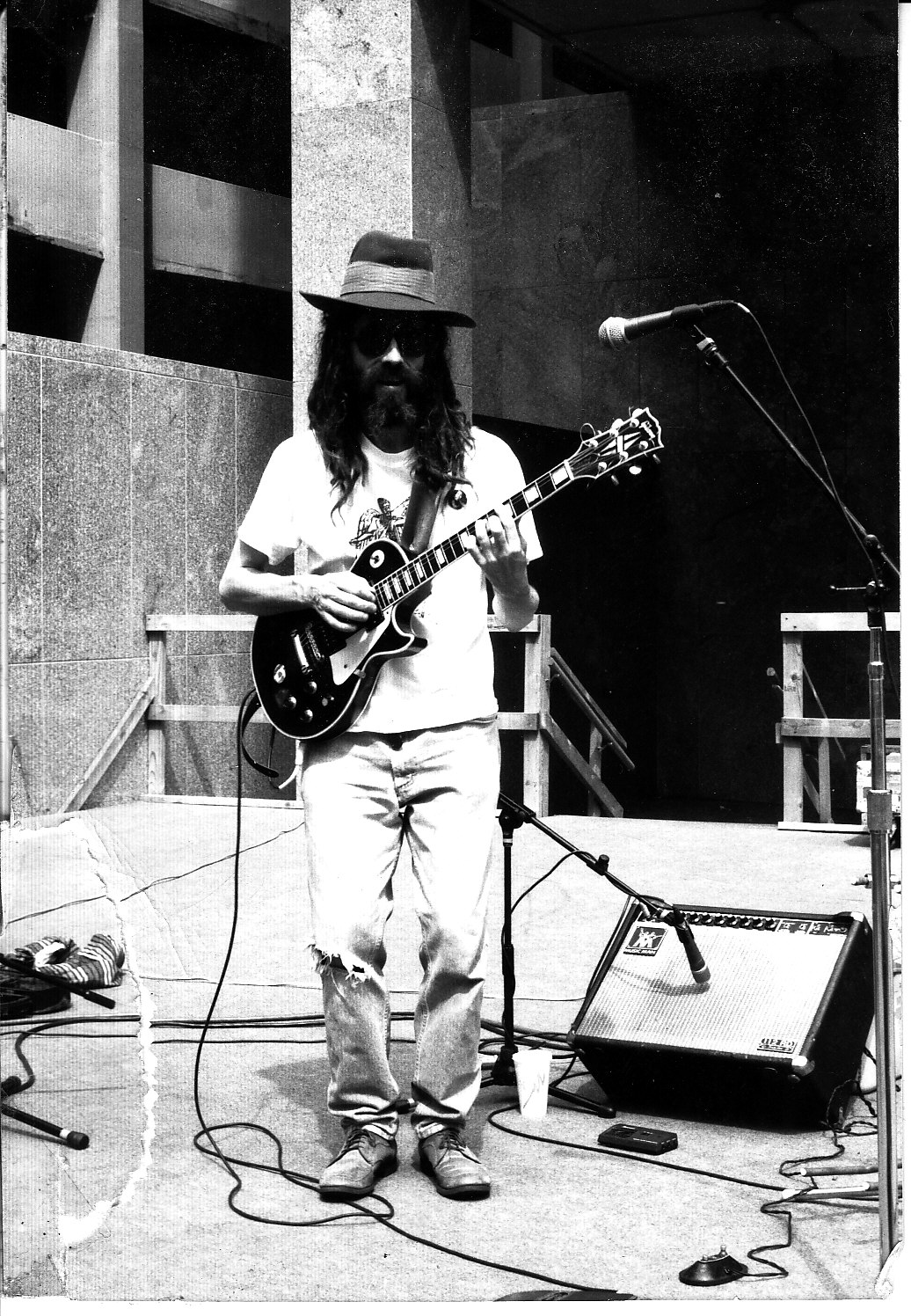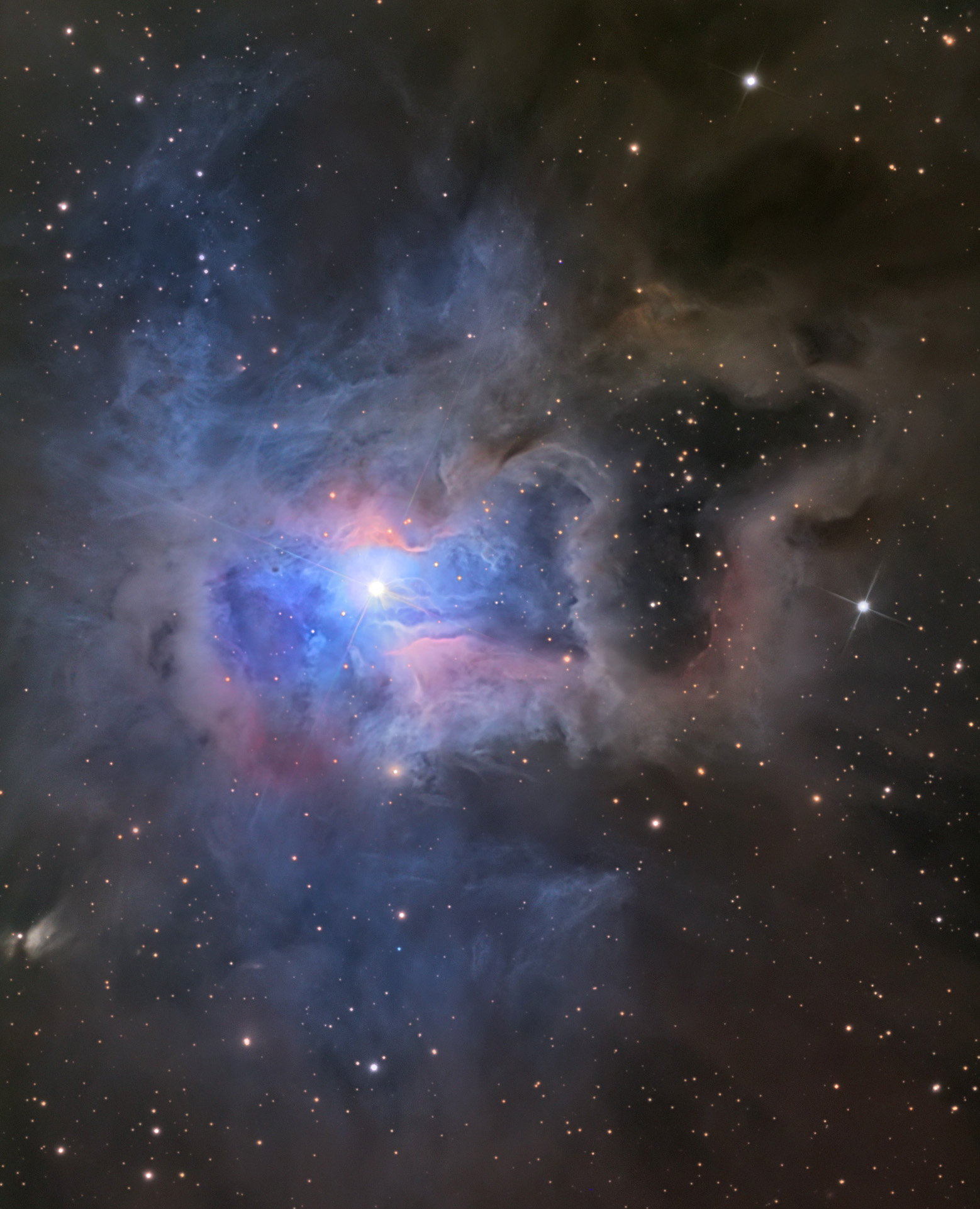Blog
James D. “Shakey Jake” Harris (April 12, 1921 – March 2, 1990) was an American Chicago blues singer, harmonicist and songwriter. He released five albums over a period of almost 25 years. He was often musically associated with his nephew Magic Sam.
James D. Harris was born in Earle, Arkansas, and relocated with his family to Chicago, Illinois, at the age of seven. He played in several Chicago blues ensembles in the late 1940s. He also worked as a mechanic and as a professional gambler (his nickname came from a dice players’ expression, “shake ’em”). His debut recording was the single “Call Me if You Need Me”, backed with “Roll Your Moneymaker”, released by Artistic Records in 1958, featuring Magic Sam and Syl Johnson on guitar and produced by Willie Dixon. Harris was not paid for the session, but he won $700 shooting craps with label owner Eli Toscano.
more...Theodore Roosevelt “Hound Dog” Taylor (April 12, 1915 – December 17, 1975) was an American Chicago blues guitarist and singer.
Taylor was born in Natchez, Mississippi, in 1915, though some sources say 1917. He first played the piano and began playing the guitar when he was 20. He moved to Chicago in 1942.
He was famous among guitar players for having six fingers on both hands, a condition called polydactyly. As is usual with the condition, the extra digits were rudimentary nubbins and could not be moved. One night, while drunk, he cut off the extra digit on his right hand using a straight razor.
He became a full-time musician around 1957 but remained unknown outside the Chicago area, where he played small clubs in black neighborhoods and at the open-air Maxwell Street Market.He was known for his electrified slide guitar playing (roughly styled after that of Elmore James), his cheap Japanese Teisco guitars, and his raucous boogie beats. In 1967, Taylor toured Europe with the American Folk Blues Festival, performing with Little Walter and Koko Taylor.
more...Johnny Dodds (/ˈdɒts/; April 12, 1892 – August 8, 1940) was an American jazz clarinetist and alto saxophonist based in New Orleans, best known for his recordings under his own name and with bands such as those of Joe “King” Oliver, Jelly Roll Morton, Lovie Austin and Louis Armstrong.Dodds was the older brother of the drummer Warren “Baby” Dodds, one of the first important jazz drummers. They worked together in the New Orleans Bootblacks in 1926. Dodds is an important figure in jazz history. He was the premier clarinetist of his era and, in recognition of his artistic contributions, he was posthumously inducted into the Jazz Hall of Fame. He has been described as “a prime architect in the creation of the Jazz Age.”
Dodds was born in Waveland, Mississippi. His childhood environment was a musical one. His father and uncle were violinists, his sister played a melodeon, and in adolescence Johnny sang high tenor in the family quartet. According to legend, his instrumental skill began with a toy flute which had been purchased for his brother, Warren “Baby” Dodds. He was known for his serious and reserved manner as well as his “funky blues playing,” which earned him the nickname “toilet.”
He moved to New Orleans in his youth and studied the clarinet with Lorenzo Tio and Charlie McCurdy. He played with the bands of Frankie Duson, Kid Ory,[8] and Joe “King” Oliver. Dodds went to Chicago and played with Oliver’s Creole Jazz Band, with which he first recorded in 1923. Dodds blamed the breakup on not wanting to travel and on musical conflicts due to Oliver’s failing musical abilities. He also worked frequently with his good friend Natty Dominique during this period, a professional relationship that would last a lifetime. After the breakup of Oliver’s band in 1924, Dodds replaced Alcide Nunez as the house clarinetist and bandleader of Kelly’s Stables.From 1924 to 1930, Dodds worked regularly at Kelly’s Stables in Chicago. He recorded with numerous small groups in Chicago, notably Louis Armstrong’s Hot Five and Hot Seven and Jelly Roll Morton’s Red Hot Peppers. He also recorded prolifically under his own name, Johnny Dodds’ Black Bottom Stompers, between 1927 and 1929 for Paramount, Brunswick/Vocalion, and Victor. He became a big star on the Chicago jazz scene of the 1920s, but his career precipitously declined with the Great Depression. Although his career gradually recovered, he did not record for most of the 1930s, affected by ill-health; he recorded only two sessions—January 21, 1938, and June 5, 1940—both for Decca. He died of a heart attack in August 1940, in Chicago.
more...William Wampach (April 11 1951) Born St Cloud, MN. Mostly know as a Electric Guitarist also a songwriter, painter, sculptor and artist. Growing up in Brooklyn Center, Mn. Will worked with bands like Blackbone, Angry Souls, The Mystic Evolution, CCLC. Later Will delved into Calypso and Reggae with Lloyd Cordner in Macumba, later working with Peter Nelson in Shangoya touring Trinidad. Will then became guitarist in the Maroons a Minneapolis based premier Rock Steady/Reggae group blending R&B, Rock and Human Rights issues.

This stunning image captures a small region on the edge of the inky Coalsack Nebula, or Caldwell 99. Caldwell 99 is a dark nebula — a dense cloud of interstellar dust that completely blocks out visible wavelengths of light from objects behind it. The object at the center of the image is a (much smaller) protoplanetary nebula. The protoplanetary nebula phase is a late stage in the life of a star in which it has ejected a shell of hydrogen gas and is quickly heating up. This stage only lasts for a few thousand years before the protoplanetary nebula’s central star reaches roughly 30,000 Kelvin (approximately 17,000 degrees Fahrenheit). At this point, the central star is producing enough energy to make its surrounding shell of gas glow, becoming what’s known as a planetary nebula.
Neville Eugenton Staple (born 11 April 1955) is a Jamaica-born English singer for the 2-tone ska band The Specials as well as his own band, The Neville Staple Band. He also sang with Ranking Roger in Special Beat.
Staple was born in Manchester, Jamaica. Neville left Jamaica to live in the English town of Rugby, Warwickshire at the age of five but later moved to Coventry. He was initially active in the sound system scene, forming his own crew called “Jah Baddis”. Neville was a regular fixture at the Locarno ballroom in Coventry where he met the resident DJ there, Pete Waterman. Pete wrote the foreword to Neville’s biography – “Original Rude Boy” – and briefly managed The Specials.
more...Luther Johnson (born April 11, 1939, Itta Bena, Mississippi) is a Chicago blues singer and guitarist, who performs under the name Luther “Guitar Junior” Johnson. He is not to be confused with Luther “Georgia Boy” Johnson, Luther “Houserocker” Johnson, or Lonnie “Guitar Junior” Brooks. Johnson moved to Chicago with his family in 1955. During the 1960s, he performed with Magic Sam. He performed in Muddy Waters‘ band from 1972 to 1980. In 1980, four of his songs were included in an anthology released by Alligator Records. That same year he appeared as a member of the Legendary Blues Band, backing John Lee Hooker in the movie The Blues Brothers.
Johnson moved to the East Coast and began fronting his own band, the Magic Rockers. His “Walkin’ the Dog” was recorded live at the Montreux Festival‘s Blues Night. He won a Grammy Award in 1985 for Best Traditional Blues Album for his part in Blues Explosion. He recorded three albums released by Telarc Records: Slammin’ on the West Side (1996), Got to Find a Way (1998), and Talkin’ About Soul (2001).[1] He also performed on three albums by the Nighthawks.
more...Jimmy Lewis (April 11, 1918 – 2000) was an American double bassist who worked with the Count Basie Orchestra and sextet in the 1950s and with Duke Ellington, Cootie Williams, Billie Holiday and Ivory Joe Hunter before moving to bass guitar during his time with King Curtis. He provided the basslines for the musical Hair. Lewis freelanced extensively and performed on many albums by soul and jazz musicians, including Horace Silver and the Modern Jazz Quartet up until the late 1980s. He died in 2000.
more...John Levy (April 11, 1912 – January 20, 2012) was an American jazz double-bassist and businessman.
Levy was born in New Orleans, Louisiana. In 1944, he left his family home in Chicago, Illinois, and moved to New York City where he played bass for such renowned jazz musicians as Ben Webster, Erroll Garner, Milt Jackson, and Billie Holiday. In 1949, he became the bassist in the original George Shearing Quintet, where he also acted as Shearing’s road manager. In 1951, Levy opened John Levy Enterprises, Inc., becoming the first African-American personal manager in the pop or jazz music field. By the 1960s, Levy’s client roster included Shearing, Nancy Wilson, Cannonball Adderley, Joe Williams, Shirley Horn, Soul singer Jimmie Raye, and Ramsey Lewis. In 1997, Levy was inducted into the International Jazz Hall of Fame, and in 2006 he was named a Jazz Master by the National Endowment for the Arts. He died on January 20, 2012, aged 99, in Altadena, California.
more...The Iris Nebula (also known as NGC 7023 and Caldwell 4) is a bright reflection nebula in the constellationCepheus. The designation NGC 7023 refers to the open cluster within the larger reflection nebula designated LBN 487.
The nebula, which shines at magnitude +6.8, is illuminated by a magnitude +7.4 star designated SAO 19158.[1]It is located near the Mira-type variable star T Cephei, and near the bright magnitude +3.23 variable star Beta Cephei (Alfirk). It lies 1,300 light-years away and is six light-years across.

Joey DeFrancesco (born April 10, 1971) is an American jazz organist, trumpeter, and vocalist. He has released more than 30 albums, including recordings with Miles Davis and Jimmy Smith. DeFrancesco signed his first record deal at the age of 16 and has played internationally with musicians that include David Sanborn, Arturo Sandoval, Larry Coryell, Frank Wess, John McLaughlin, Benny Golson, James Moody, Steve Gadd, Danny Gatton, Elvin Jones, Jimmy Cobb, George Benson, Pat Martino, John Scofield, Joe Lovano, and recorded with musicians that included Ray Charles, Bette Midler and Van Morrison.
DeFrancesco was born in 1971 in Springfield, Pennsylvania. He was born into a musical family that included three generations of jazz musicians. He was named after his grandfather, Joseph DeFrancesco, a jazz musician who played the saxophone and clarinet His father, “Papa” John DeFrancesco, was an organist who played nationally and received the Oklahoma Jazz Hall of Fame‘s Living Legend Award in 2013. DeFrancesco began playing the organ at the age of 4 and was playing songs by Jimmy Smith verbatim by the time he was 5. His father John began taking him to gigs from the age of 5, letting him sit in on sets. At the age of 10, DeFrancesco joined a band in Philadelphia that included jazz musicians Hank Mobley and Philly Joe Jones. He was considered a fixture at local jazz clubs, opening shows for Wynton Marsalis and B.B. King.
DeFrancesco attended the Philadelphia High School for the Creative and Performing Arts. During his high school years, DeFrancesco won numerous awards, including the Philadelphia Jazz Society McCoy Tyner Scholarship. He was a finalist in the first Thelonious Monk International Jazz Piano Competition.
more...Omar Sosa (born April 10, 1965) is a jazz pianist from Cuba.
A native of Camagüey, Cuba, Sosa studied percussion at the Escuela Nacional de Musica and Instituto Superior de Arte. In the 1980s he started the band Tributo, recording albums and touring with the band. He worked with Cuban vocalist Xiomara Laugart and several Latin jazz bands. In the 1990s he moved from Cuba to Quito, Ecuador; to Palma de Mallorca, Spain; to the San Francisco Bay area, in California, United States; and finally settled in Barcelona, Spain.
While in California, Sosa released his first few albums under his own name. He had received Grammy Award nominations for four of his albums, three in the Latin Jazz category, as of 2020. In January 2011, Sosa and the NDR Bigband[de] (North German Radio Bigband) won the 10th Independent Music Awards (IMAs) in the Jazz Album category for Ceremony. He has also collaborated with Paolo Fresu, Seckou Keita, Adam Rudolph, and many other musicians. Sosa has released most of his recordings on his own Otá label.
more...Neville O’Riley Livingston OM OJ (10 April 1947 – 2 March 2021), known professionally as Bunny Wailer, was a Jamaican singer-songwriter and percussionist. He was an original member of reggae group The Wailers along with Bob Marley and Peter Tosh. A three-time Grammy Award winner, he is considered one of the longtime standard-bearers of reggae music. He was also known as Jah B, Bunny O’Riley, and Bunny Livingston.
Wailer was born Neville O’Riley Livingston on 10 April 1947 in Kingston. He spent his earliest years in the village of Nine Mile in Saint Ann Parish. It was there that he first met Bob Marley, and the two young boys befriended each other quickly. The boys both came from single-parent families; Livingston was brought up by his father, Marley by his mother. Later, Wailer’s father Thaddeus “Thaddy Shut” Livingston lived with Marley’s mother Cedella Booker in Trenchtown and had a daughter with her named Pearl Livingston. Peter Tosh had a son, Andrew Tosh, with Wailer’s sister Shirley, making Andrew his nephew.
more...Kishori Ravindra Amonkar (10 April 1932 – 3 April 2017) was a leading Indian classical vocalist, belonging to the Jaipur gharana, or a community of musicians sharing a distinctive musical style.
She was a performer of the classical genre khyal and the light classical genres thumri and bhajan. Amonkar trained under her mother, classical singer Mogubai Kurdikar also from the Jaipur gharana, but she experimented with a variety of vocal styles in her career.
Kishori’s initial training in music was by her mother, the classical vocalist Mogubai Kurdikar. She has stated in an interview that her mother was an exacting teacher, initially teaching her by singing phrases and making Kishori repeat them. In the early stages of her career, she travelled with her mother to performances, accompanying her on the tanpura while Kurdikar sang.
In the early 1940s, young Kishori began to receive vocal lessons in Hindustani classical music from Anjanibai Malpekar of the Bhendibazaar gharana and later received training from tutors of several other gharanas.Her tutors included Anwar Hussain Khan of Agra gharana, Sharadchandra Arolkar of Gwalior gharana, and Balkrishnabuwa Parwatkar. Kishori has credited Anjanibai, in particular, with teaching her the technique of meend, or gliding, between notes.
more...More Posts
- Rhythm Roots Workshop Tasks Unlimited
- Cosmo NGC 1893
- Emmylou Harris
- Marvin Gaye
- Leon Russell
- Larry Coryell
- Booker Little
- World Music Cumar Dhuule
- Daily Roots Dennis Brown
- Alien Spaceships Circling Earth
- Challenge to Change
- Cosmo NGC 4945
- Jorge López Ruiz
- Alberta Hunter
- Gilbert Scott-Heron
- Duke Jordan
- World Music Faysal Cumar Mushteeg Ahun
- Daily Roots Tommy McCook Supersonics
- Ahmed Yusuf & Somali Blues Performance 4-6-2025
- Don’t Lose Your Head